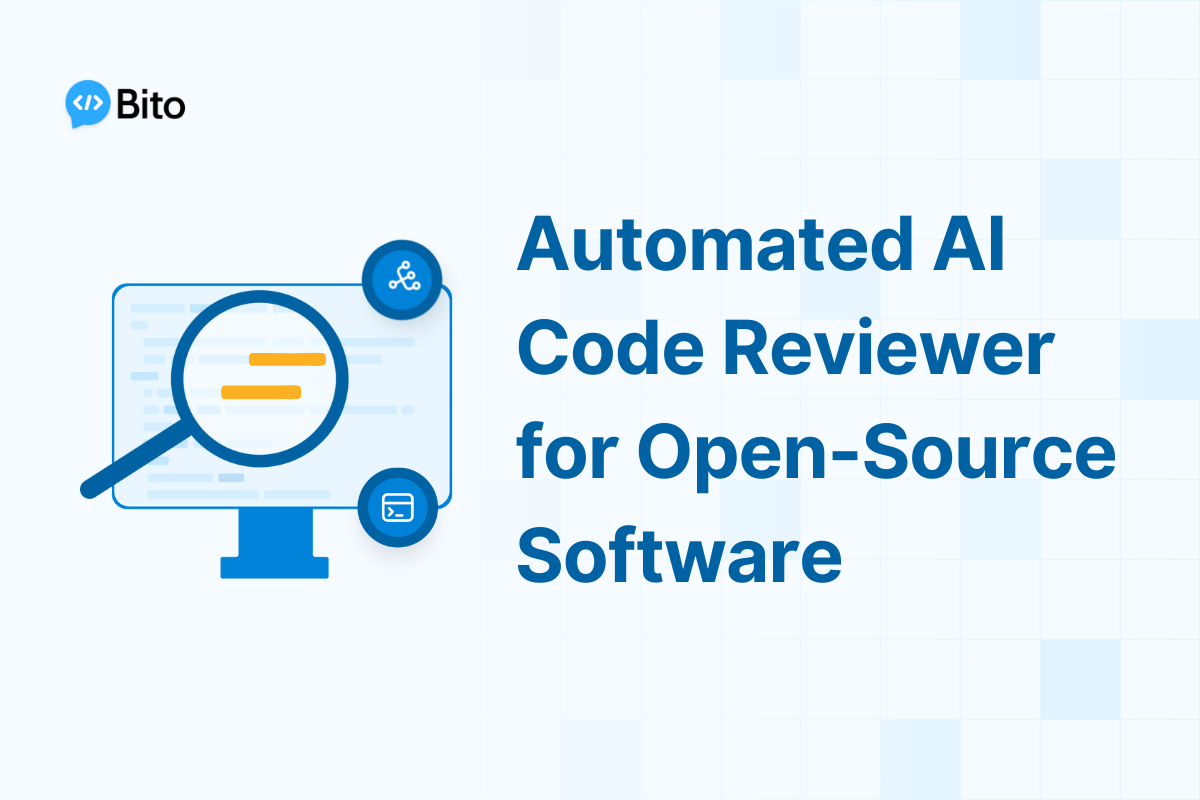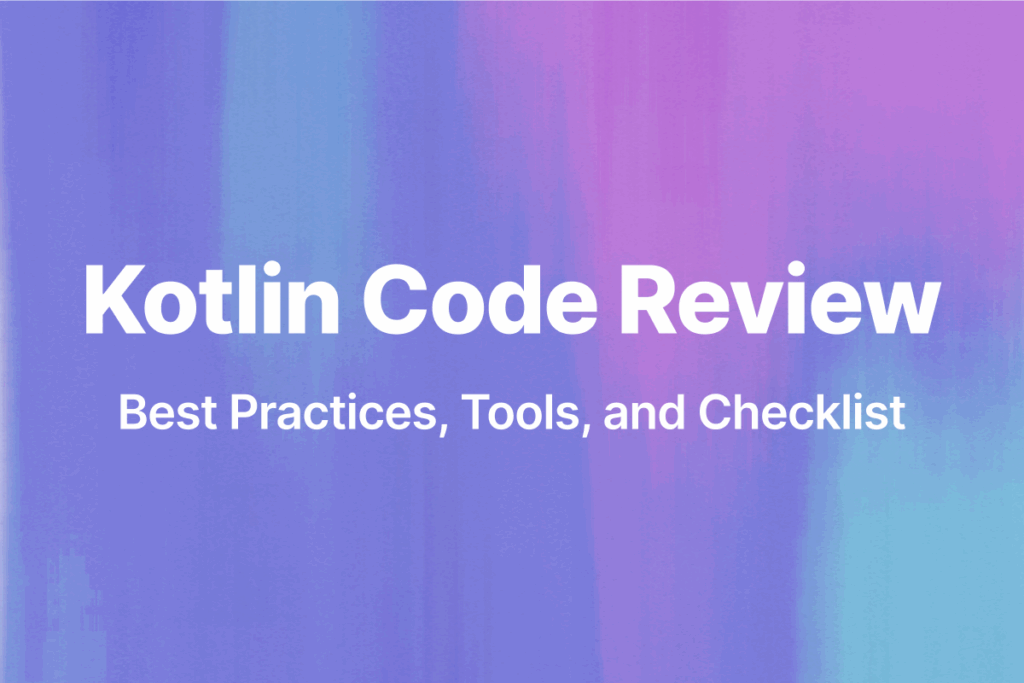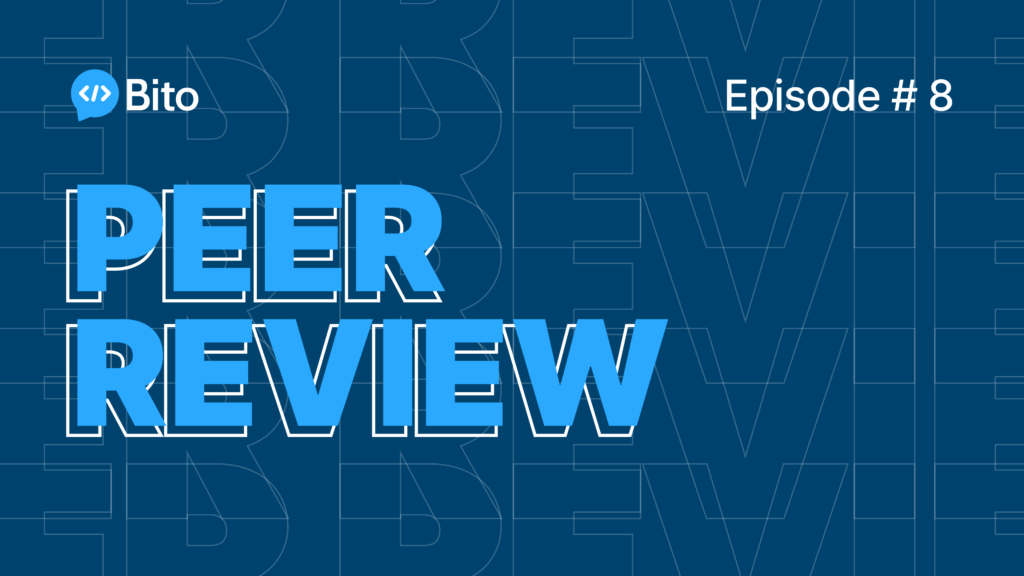As an open-source software maintainer, I know firsthand how overwhelming managing multiple pull requests can be. From vetting new contributors’ code to ensuring consistency with project standards, the workload adds up fast.
The more popular your project becomes, the more this pressure mounts. What starts as a passion project can quickly turn into an exhausting full-time responsibility.
That’s where automated AI code reviewer tools, like Bito’s AI Code Review Agent, can be a game-changer. These tools don’t just help spot bugs and issues; they assist in scaling your review process while maintaining high standards.
In this article, we’ll dive into the common challenges open-source software maintainers face and how AI-powered code review tools can relieve some of that burden, allowing maintainers to focus on growing their projects, rather than being bogged down by endless manual reviews.
Unlock the power of Bito’s AI for free through our Open-Source Sponsorship Program. Apply now to gain free access to Bito’s AI Code Review Agent.
The growing challenge of open-source maintenance
Maintaining a popular open-source project is rewarding, but it’s also incredibly demanding. What starts as a manageable stream of pull requests can quickly turn into an overwhelming flood as the community grows.
Every new feature, bug fix, or contribution requires careful review, and with a diverse pool of contributors, code quality can vary significantly. This makes the task of ensuring consistency, security, and functionality even more challenging.
The role of a maintainer, once focused on innovation, can easily shift toward endless code reviews and administrative tasks.
For maintainers, the challenge is not just reviewing the code but also doing so at scale, without missing important issues. This increasing load makes it clear why open-source maintainers need tools that can help automate the grunt work while allowing them to focus on higher-level decisions.
Why code reviews are crucial for open source
Code reviews are the backbone of any healthy open-source project. They ensure that new code is clean, follows the project’s standards, and doesn’t introduce bugs or security vulnerabilities.
These reviews aren’t just about correcting errors—they help maintainers guide contributors on best practices and improve the overall quality of the codebase. However, this process is time-intensive, especially when dealing with frequent contributions.
Without proper code reviews, open-source projects can spiral into technical debt, leading to inconsistent code quality, which can damage the project’s reputation. This makes effective code reviews essential, but the manual process is often too slow to keep up with a project’s growth.
The limits of manual code reviews
As much as manual code reviews are crucial, they come with significant limitations.
First, they’re time-consuming. Each pull request needs to be carefully read, tested, and considered in the context of the entire project. For popular projects, this can mean hours spent reviewing code every day.
Second, manual reviews are subject to human error. When fatigue sets in or when context-switching between multiple tasks, issues can be overlooked.
Furthermore, not every maintainer has expertise in every aspect of the codebase, leading to inconsistent reviews depending on who is available to check the code.
All of this adds up, reducing productivity and risking quality.
Enter AI-powered code reviews
This is where AI-powered tools like Bito’s AI Code Review Agent come in. These tools automate many aspects of the review process by analyzing code with machine learning models trained to catch bugs, enforce style guidelines, and detect security vulnerabilities.
The AI doesn’t replace the human element but augments it, catching routine issues so that maintainers can focus on the more complex, higher-value aspects of code reviews.
Unlike traditional automation tools, AI Code Review Agent doesn’t just look for syntax errors—it learns from the patterns in the project and provides suggestions based on context. This allows the tool to deliver more intelligent and insightful feedback.
How Bito’s AI Code Review Agent works
Bito’s AI Code Review Agent is designed to integrate seamlessly with your existing workflow, whether through GitHub, GitLab, Bitbucket, or directly in your IDE.
It automatically scans pull requests, categorizes changes, and flags issues that need attention. For maintainers, this means getting a quick, comprehensive view of what’s been changed, what’s been impacted, and whether there are any problems.
For example, when a contributor submits a PR, Bito can identify key changes, suggest improvements, and highlight areas where the code doesn’t align with the project’s standards.
It also categorizes changes—such as bug fixes, refactoring, or new features—so maintainers can prioritize their reviews. This helps maintainers save hours of work, especially with large and complex PRs.
Saving time without sacrificing code quality
One of the biggest advantages of using AI for code reviews is the time it saves. While manual reviews can take hours, an AI-powered tool like Bito’s can analyze the same PR in minutes, highlighting key issues that require human attention.
This means maintainers can spend more time on strategic tasks and less time on routine checks.
AI also ensures that code quality remains high, even with increased contributions.
For instance, Bito’s tool checks for common errors, stylistic inconsistencies, and potential bugs. This allows maintainers to address issues early before they become bigger problems in the codebase, without compromising on quality.
Consistency across codebases
With contributors coming from diverse backgrounds, keeping the codebase consistent is a challenge. Coding styles, levels of expertise, and understanding of best practices can vary widely. AI tools help by enforcing project standards automatically, ensuring that every contribution aligns with predefined guidelines.
Bito’s AI Code Review Agent is particularly good at this. It checks every pull request against the project’s established style guides, helping to ensure that the code is both clean and maintainable.
This consistency across the board reduces technical debt and keeps the project scalable, no matter how many contributors get involved.
Improving onboarding for new contributors
New contributors often face a steep learning curve when trying to get involved in an open-source project. They may not fully understand the project’s style guidelines or the expected quality of contributions.
AI-powered tools can help bridge this gap by providing instant, actionable feedback.
With Bito’s AI Code Review Agent, new contributors can quickly see where their code needs improvement and why. This not only helps them learn faster but also reduces the burden on maintainers to constantly correct the same types of issues.
It’s like having a second set of eyes guiding newcomers through the process, without the need for a senior developer to do all the hand-holding.
Handling security concerns with AI
Security is a top concern for any open-source maintainer. Even a small vulnerability can be exploited, potentially damaging the entire project. Manually scanning code for security risks is not always feasible, especially as the number of pull requests increases.
Bito’s AI Code Review Agent includes features designed to identify potential security flaws, like unvalidated inputs or outdated dependencies.
By automating this process, maintainers can catch vulnerabilities early, keeping their projects secure without needing to be security experts themselves. This is critical in maintaining trust within the open-source community.
The future of AI in open-source maintenance
AI-driven code reviews are not just a temporary solution—they represent the future of open-source maintenance.
As AI tools become more advanced, they will be able to offer even deeper insights, handling more complex tasks and making code reviews even faster and more accurate.
For maintainers, this means staying ahead of the curve. By adopting AI-powered tools like Bito’s today, you’re setting your project up for success in the future, freeing up time for innovation while ensuring that every contribution meets the highest standards.
The future of open source is bright, and AI is leading the way in making it more manageable for maintainers everywhere.
Conclusion
Maintaining an open-source project is a rewarding but often overwhelming task. The influx of pull requests, diverse contributor skill levels, and the need to maintain high-quality, secure code can stretch even the most dedicated maintainers thin.
Automated AI tools like Bito’s AI Code Review Agent provide a powerful solution, helping to streamline code reviews, catch potential issues early, and ensure consistency across the project—all without sacrificing quality or security.
By embracing AI-powered code review tools, maintainers can reduce their workload, foster a more inclusive community of contributors, and focus on growing their projects rather than getting lost in the weeds of manual reviews.
The future of open source is about smart automation, and tools like Bito are here to make that future a reality for every maintainer.






